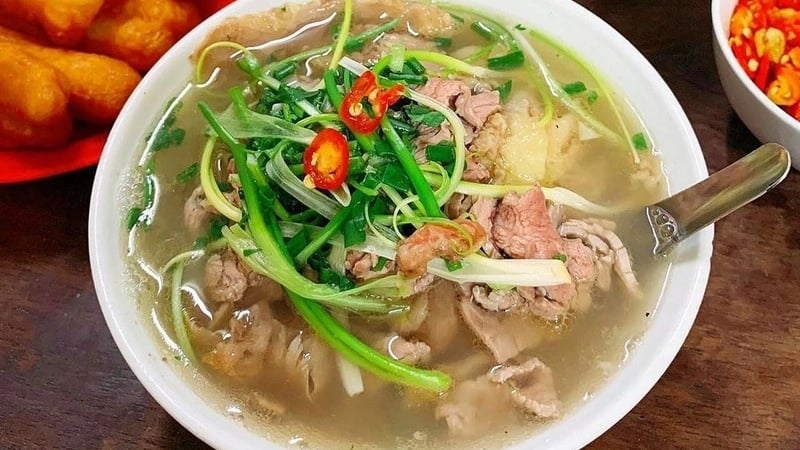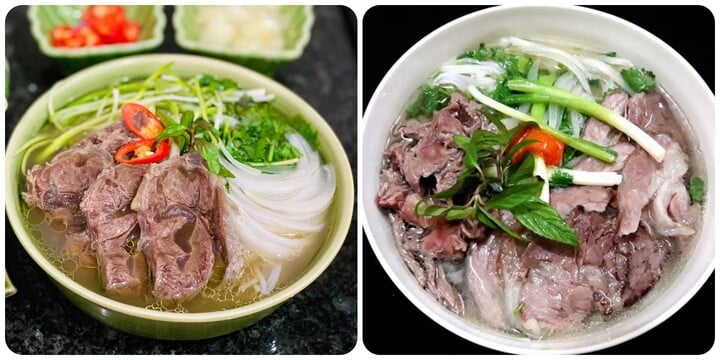1. Individuals with Diabetes
Pho noodles are high in carbohydrates, which can cause a rapid spike in blood sugar levels after consumption. For those with diabetes, ingesting such fast-acting starches may lead to significant glucose fluctuations, resulting in fatigue or severe complications. It’s advisable for diabetics to limit portion sizes, opt for pho with fewer noodles, increase green vegetables, or choose alternatives with a lower glycemic index.
2. Individuals with Cardiovascular Disease and High Blood Pressure
Traditional pho broth often contains high levels of sodium, monosodium glutamate, and seasonings. Excessive sodium intake is a risk factor for sudden blood pressure spikes and increased strain on the heart. Those with a history of cardiovascular issues should consider homemade pho, reducing salt and oil. Additionally, opting for chicken pho, which is lower in fat, is preferable over beef pho with fatty cuts.

3. Overweight or Obese Individuals
A typical bowl of pho can range from 350 to 500 calories, depending on the meat, broth, and toppings. Frequent consumption without portion control can contribute to weight gain. Overweight individuals should opt for smaller portions, pair pho with herbs and bean sprouts to increase fiber intake, promote satiety, and reduce fat absorption.
4. Individuals with Food Allergies
Many cases of allergic reactions to pho arise from ingredients like gluten (in noodles), roasted peanuts, onions, or specific spices. For those with allergies, failing to monitor these components can lead to rashes, breathing difficulties, or digestive issues. It’s crucial to verify ingredients carefully, especially when dining out.
5. Individuals with Gout
Beef pho, particularly cuts like brisket or tendon, contains high levels of purines, which elevate uric acid in the blood. This can trigger or worsen gout attacks. Gout sufferers should limit beef pho and instead choose chicken pho or lighter, low-purine options to minimize joint pain.
6. Pregnant Women
While pho can be nutritious for expectant mothers, it poses risks if ingredients are not safely prepared. Raw beef, undercooked broth, or raw vegetables may harbor harmful bacteria. Spicy seasonings can also irritate the digestive system. Pregnant women should select reputable eateries or prepare pho at home to ensure safety for both mother and baby.

7. Individuals with Gastric Conditions
Rich pho broths, often high in fat and strong seasonings, can irritate the stomach lining. Consuming pho on an empty stomach may cause indigestion, heartburn, or upper abdominal discomfort. Those with gastritis or ulcers should consume pho in moderation, avoid fatty meats, and opt for lighter, less seasoned broths.
Expert Advice
- Eat pho in moderation, avoiding it as a complete meal replacement.
- Incorporate greens, bean sprouts, and lime to balance nutrients.
- Limit fatty broths, salty dipping sauces, and spicy additives.
- Prepare pho at home to control ingredients and sodium levels.
Listening to your body and adjusting portions accordingly ensures safe enjoyment of pho, allowing you to savor its traditional flavors while protecting long-term health.
































